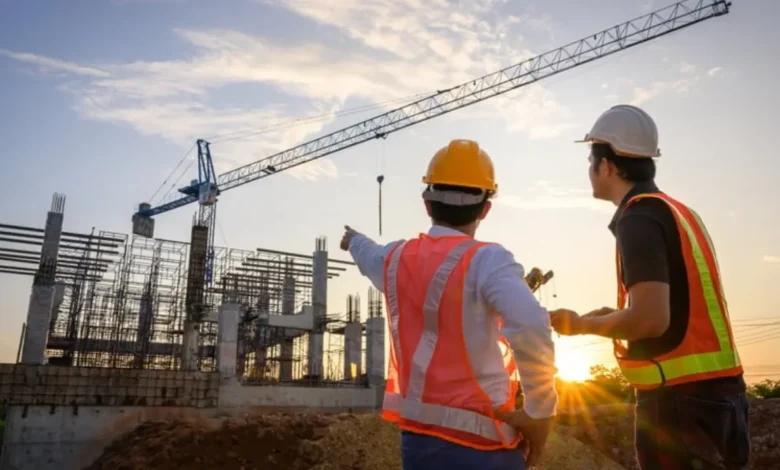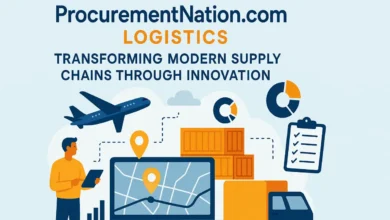SOA OS23: A Comprehensive Guide to Demolition Works Certification in Italy

Public works in Italy are governed by strict rules to ensure quality, safety, and compliance with national construction laws. One essential element of this system is the SOA certification (Società Organismo di Attestazione), which verifies that companies have the technical and financial capacity to perform public contracts. Among the many SOA categories, SOA OS23 is specifically designed for companies engaged in demolition works. This article examines SOA OS23, its scope, classification levels, requirements, and the reasons why it is crucial for construction companies bidding on demolition projects in Italy.
What is SOA OS23?
SOA OS23 is a specialized category within the Italian SOA certification system, specifically related to demolition works (demolizione di opere). It certifies that a company is qualified to handle all types of demolition activities, from small-scale building removals to complex industrial plant dismantling and controlled explosive demolitions.
The primary goal of SOA OS23 is to ensure that companies conducting demolition work:
- Follow national safety standards.
- Use appropriate equipment and methodologies.
- They are financially stable and possess technical skills.
- Can manage environmental aspects such as recycling and demolition materials.
Any company planning to bid on public demolition contracts exceeding €150,000 is required by law to hold this certification. Without SOA OS23, they cannot participate in tenders for demolition-related public works.
Scope of Work Covered by SOA OS23
The SOA OS23 category is broad and includes a wide range of activities. According to the official declaration, this category covers:
- Complete or Partial Demolition of Buildings
- Residential buildings, commercial structures, and industrial complexes.
- Selective demolition, where only specific sections of a building are removed.
- Dismantling Industrial Plants and Large Installations
- Factories, refineries, and production facilities.
- Safe disassembly of machinery and infrastructure.
- Controlled Explosive Demolition
- The use of explosives for the precise and controlled collapse of structures, such as bridges, towers, and stadiums.
- Cutting Reinforced Concrete and Steel Structures
- Specialized techniques such as diamond cutting and sawing for structural separation.
- Material Recovery and Recycling
- Sorting, separating, and recycling debris in compliance with environmental laws.
- Site Clearing and Debris Management
- Safe transportation and disposal of rubble and hazardous waste.
By covering these areas, SOA OS23 ensures that only competent contractors handle high-risk demolition operations.
SOA OS23 Classification Levels
The SOA certification is divided into different classification levels, each representing the maximum value of work a company can bid on. This helps match project complexity and financial capacity with a contractor’s proven ability.
Here are the current classification levels for SOA OS23:
| Classifica | Maximum Project Value (€) |
|---|---|
| I | 258,000 |
| II | 516,000 |
| III | 1,033,000 |
| III-bis | 1,500,000 |
| IV | 2,582,000 |
| IV-bis | 3,500,000 |
| V | 5,165,000 |
| VI | 10,329,000 |
| VII | 15,494,000 |
| VIII | Over 15,494,000 |
Note: These amounts are increased by 20% when applied to tender bidding limits.
The classification level determines the scope of projects a company can participate in. For example:
- A company with SOA OS23 Class I can only bid for smaller-scale demolitions up to €258,000.
- A Class VIII certification allows bidding for projects of any value, including large-scale industrial demolitions.
Who Needs SOA OS23 Certification
The SOA OS23 certification is mandatory for:
- Construction and demolition companies bidding on public sector demolition contracts valued at over €150,000.
- Firms aiming to participate in tenders involving hazardous demolitions, such as controlled explosive demolition or work involving structural steel dismantling.
Even private-sector companies benefit from holding SOA OS23, as it demonstrates credibility, professionalism, and compliance with Italian construction laws.
Requirements for Obtaining SOA OS23
To obtain SOA OS23 certification, companies must undergo a rigorous verification process. This process evaluates both technical competence and financial stability.
Key Requirements:
- Financial Documentation
- Recent financial statements (typically the last three years).
- Proof of consistent revenue from demolition-related activities.
- Evidence of adequate liquidity and capital.
- Technical Experience
- A portfolio of past demolition projects, including descriptions and costs.
- Proof that previous work was completed in compliance with safety and environmental regulations.
- Skilled Workforce
- Documentation of certified employees trained in demolition techniques.
- Evidence of staff qualifications for specialized operations like explosive demolition.
- Equipment and Resources
- Ownership or leasing of demolition machinery such as excavators, crushers, and cutting tools.
- Safety gear and environmental protection equipment.
- Legal Compliance
- Tax compliance certificates.
- No outstanding legal disputes that could affect public work eligibility.
- Quality Management Systems
- Many SOA bodies require companies to have ISO certifications, notably ISO 9001 for quality management.
Authorized SOA bodies handle the certification process, and the certification remains valid for five years, with a mandatory compliance check at the three-year mark.
Benefits of SOA OS23 Certification
Obtaining SOA OS23 offers numerous advantages for companies working in the demolition sector:
Eligibility for Public Tenders
The most apparent benefit is gaining access to public works contracts valued over €150,000. Without SOA OS23, a company is automatically excluded from these opportunities.
Enhanced Reputation
Certification indicates that the company meets stringent technical and financial standards, enhancing its reputation among clients and partners.
Competitive Advantage
In competitive bidding environments, having SOA OS23 certification can be a decisive factor in securing contracts.
Safety and Environmental Compliance
The certification process ensures that companies adhere to safety regulations and best practices for recycling and waste management.
Growth Opportunities
By obtaining higher classifications, companies can progressively move toward larger, more lucrative projects.
Common Mistakes to Avoid During Certification

While applying for SOA OS23, many companies encounter challenges. Here are common pitfalls to avoid:
- Incomplete Documentation
- Missing financial records or outdated certifications can delay or block the process.
- Underestimating Classification Needs
- Companies often apply for a lower classification than they actually need, which limits their future growth potential.
- Neglecting Staff Training
- Failing to maintain updated training records for employees can lead to non-compliance.
- Ignoring Environmental Regulations
- Failing to document recycling and waste management practices can result in the rejection of your application.
SOA OS23 vs. Other SOA Categories
SOA certifications are divided into general and specialized categories. While some certifications focus on general construction activities, SOA OS23 is exclusively concentrated on demolition.
For example:
- SOA OG1 covers general building construction.
- SOA OG3 applies to roads and infrastructure.
- SOA OS23, on the other hand, is solely for demolition-related work.
Companies often hold multiple certifications if their services span several areas.
Steps to Obtain SOA OS23
Here is a step-by-step guide for companies seeking to obtain SOA OS23 certification:
- Initial Assessment
- Review internal financial and technical records to determine eligibility.
- Select an Authorized SOA Body
- Choose a recognized organization that handles SOA evaluations.
- Prepare Documentation
- Gather financial statements, project portfolios, tax compliance records, and staff certifications.
- On-Site Verification
- SOA representatives may visit company facilities to verify equipment and operations.
- Certification Decision
- If all requirements are met, the company receives its SOA OS23 certification, accompanied by an assigned classification.
- Ongoing Compliance
- Maintain standards and prepare for the three-year interim review.
Conclusion
The SOA OS23 certification is a vital requirement for companies engaged in demolition works in Italy. It ensures that only qualified, experienced, and financially stable firms handle complex and high-risk demolition projects. From small-scale building demolitions to large industrial plant dismantling and controlled explosive operations, SOA OS23 covers a broad spectrum of activities.





